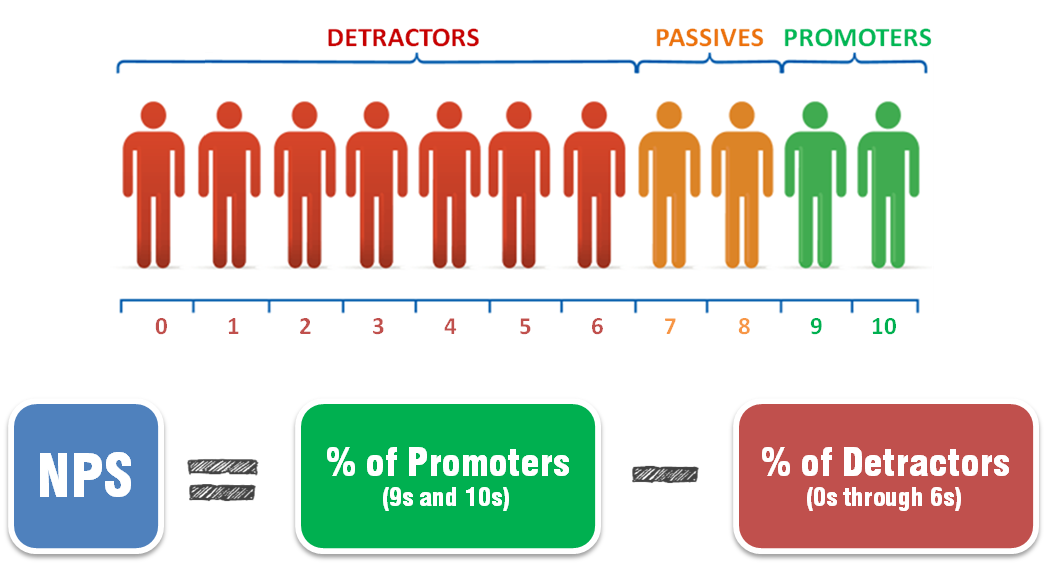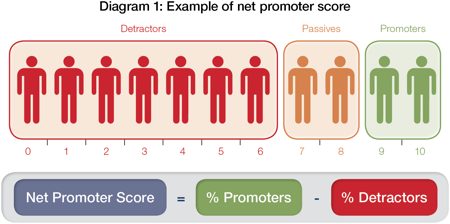You are viewing our site as a Broker, Switch Your View:
Agent | Broker Reset Filters to Default Back to ListWhat Is Net Promoter Score, and Why Should Brokers Care?
September 01 2016

The growth of agent rating systems over the past five years has been extraordinary. It's great to see brokerages really start to measure these important metrics. However, we believe there is a more important metric than just a 5-star rating that should be used.
This metric is called Net Promoter Score – a metric created by Satmetrix.
- First of all, what is Net Promoter Score?
Simply put, it's the net score after taking all your company's promoters and subtracting all its detractors. So, for example, let's say in the month of May your company sold 100 homes. Of those 100 clients, 20 tell everyone they know about your company and how great it is. Seventy didn't have an amazing experience, but didn't really have a bad experience either, and therefore don't tell anyone they know about your enterprise. Ten people had a bad experience with your company and tell everyone they know not to use it.
- +20 for your promoters, 0 for your so-so people, and -10 for your detractors.
Using this example you'd have a Net Promoter Score of 10.
What makes net promoter score so interesting is that this score can be calculated by asking past clients just one question: "How likely are you to refer me to a friend?"
The interesting thing is that it is almost unheard of in the real estate industry. However, it translates perfectly. Most Fortune 50 companies employ this simple technique, and after use for numerous years, they have found something very interesting. It's one of the best estimations of corporate growth there is.
The question is asked in a 0-10 survey style. Zero means, "I would never refer you," and 10 means, "I will tell everyone I know about you." After years of studying, they found that someone rating you a 0-6 would be considered one of the detractors. A 7 or 8 is neutral. A 9 or 10 is a promoter.

The reasoning behind this is based on human psychology. People tend to be nice when they are filling out a survey if they feel that there is any chance it might be seen by the individual they are rating. Therefore from 0-6 is all detractors.
People who vote 7 or 8 generally are telling you they weren't really unhappy but they didn't have a WOW experience in using your company. The 9s are saying that it was an amazing experience, but maybe just one small little thing wasn't perfect. 10s are saying, Holy cow, it was the best experience I could have possibly hoped for and nothing went wrong.
The top question I get when explaining NPS is how can it do such a good job at measuring five-year growth cycles? The answer is simple: the average American can see anywhere from 850-5000 ads a day, depending on their activity level. As ads proliferated our daily lives, the average consumer's trust is being pushed more and more to their friends to tell them what companies or, in this case, what Realtor they should be using. If someone must put their reputation on the line to recommend someone else, they are going to be careful with that process. Therefore, a recommendation is worth more than any multi-million dollar ad campaign.
The most important thing to recognize in considering NPS is what your competitor's score is and compare it to your own. In general, industries stay fairly close together; it's the companies that are a few points above everyone else that are the real growth players.
Some industries tend to just generally have bad experiences. Without calculating the score, I'm willing to guess that real estate sales is one of those industries. In fact, I'm also willing to bet that real estate will be one of the only fields that will turn in an industry wide net promoter score that will be negative.
To view the original article, visit the Tribus blog.









